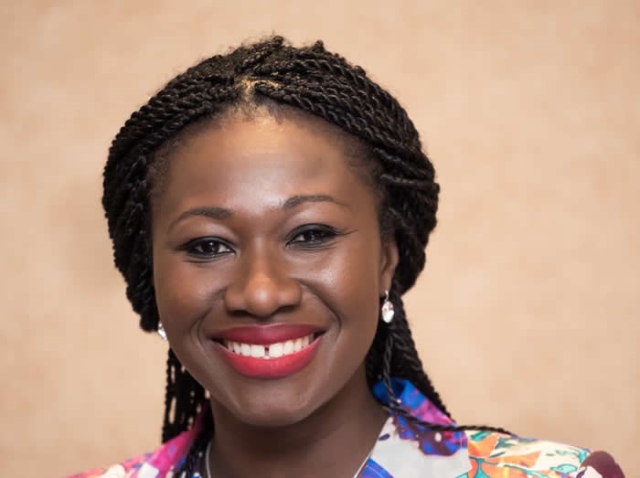Adoma Peprah describes herself as a passionate Afro-optimist Payments technology company, Visa, has set up a dedicated office in Ghana in a bid to build stronger relationships with its partners in the country.
Country Manager for Visa Ghana, Adoma Peprah, said although the payments solution provider has been operating in Ghana for over ten years, it has done so from its Nigeria office.
She explained that the growing sophistication of Ghana’s financial market underscores the need to have a dedicated establishment in the country.
“The Ghanaian economy is growing; payments are continuously becoming sophisticated and you need a dedicated focus here in Ghana to build these relationships so we decided to set up an office. Sub Saharan Africa is very, very key for us…on the continent there is a lot of cash and we find that we need to digitise the cash. Ghana is a huge market for us.
“Our focus here is for us to say ‘how can we work with the government and the industry to help the Bank of Ghana’s financial inclusion drive?’” she said recently at a short media engagement.
Visa’s dedicated focus on Ghana comes at a time when the central bank is also firming up efforts to advance government’s financial inclusion drive.
The Payment Systems and Settlement bill – which is being championed by the Bank of Ghana – has just been passed by Parliament.
It is expected to stir up innovation in the financial space and to facilitate the process of moving closer to the use of digital platforms for transactions.
The new bill, awaiting presidential assent, is also expected to make it easy for non-bank entities and fintech companies to have direct access to the Bank of Ghana (BoG) for licensing – removing the existing framework that demands that these companies go through the big banks.
Head of Payment Systems at the Bank of Ghana, Dr Settor Amediku, has said the country was going to have a competitive payment ecosystem that would make banks innovate or risk losing their clients to the licensed non-bank entities.
Although a 2017 report by the Global Findex Database found that Ghanaian adults with access to financial service account increased from 29% in 2011 to 58%, experts believe there is room for improvement.The report said seven million Ghanaian adults did not have a bank account, indicating that the country’s formal banking industry is still struggling with the challenge of decreasing the unbanked population.Adoma Peprah believes digitisation […]
